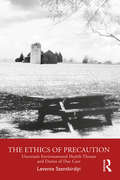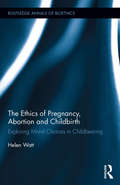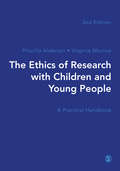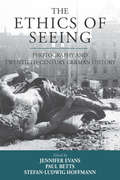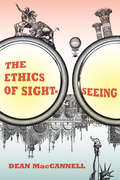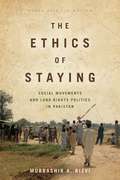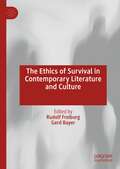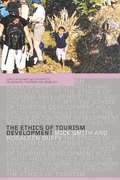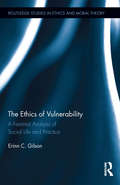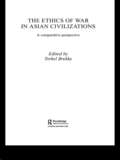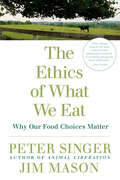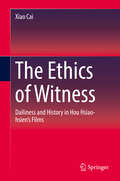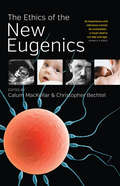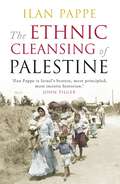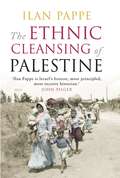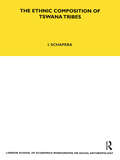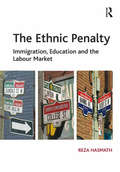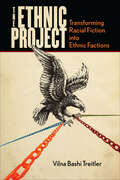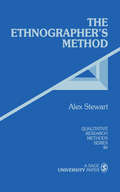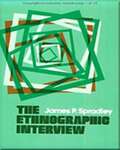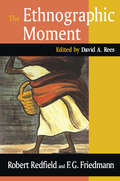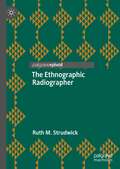- Table View
- List View
The Ethics of Precaution: Uncertain Environmental Health Threats and Duties of Due Care
by Levente SzentkirályiThere are thousands of substances manufactured in the United States to which the public is routinely exposed and for which toxicity data are limited or absent. Some insist that uncertainty about the severity of potential harm justifies implementing precautionary regulations, while others claim that uncertainty justifies the absence of regulations until sufficient evidence confirms a strong probability of severe harm. In this book, Levente Szentkirályi overcomes this impasse in his defense of precautionary environmental risk regulation by shifting the focus from how to manage uncertainty to what it is we owe each other morally. He argues that actions that create uncertain threats wrongfully gamble with the welfare of those who are exposed and neglect the reciprocity that our equal moral standing demands. If we take the moral equality and rights of others seriously, we have a duty to exercise due care to strive to prevent putting them in possible harm’s way. The Ethics of Precaution will be of great interest to researchers, educators, advanced students, and practitioners working in the fields of environmental political theory, ethics of risk, and environmental policy.
The Ethics of Pregnancy, Abortion and Childbirth: Exploring Moral Choices in Childbearing (Routledge Annals of Bioethics)
by Helen WattThe Ethics of Pregnancy, Abortion and Childbirth addresses the unique moral questions raised by pregnancy and its intimate bodily nature. From assisted reproduction to abortion and ‘vital conflict’ resolution to more everyday concerns of the pregnant woman, this book argues for pregnancy as a close human relationship with the woman as guardian or custodian. Four approaches to pregnancy are explored: ‘uni-personal’, ‘neighborly’, ‘maternal’ and ‘spousal’. The author challenges not only the view that there is only one moral subject to consider in pregnancy, but also the idea that the location of the fetus lacks all inherent, unique significance. It is argued that the pregnant woman is not a mere ‘neighbor’ or helpful stranger to the fetus but is rather already in a real familial relationship bringing real familial rights and obligations. If the status of the fetus is conclusive for at least some moral questions raised by pregnancy, so too are facts about its bodily relationship with, and presence in, the woman who supports it. This lucid, accessible and original book explores fundamental ethical issues in a rich and often neglected area of philosophy in ways of interest also to those from other disciplines.
The Ethics of Research with Children and Young People: A Practical Handbook
by Priscilla Alderson Virginia MorrowA practical guide to carrying out ethical research with children and young people, this practical handbook examines the ethical questions that arise at each stage of research, from first plans to dissemination and impact. Illustrated with case studies from international and inter-disciplinary research, it offers advice for addressing each ethical question, issue or uncertainty. Including: • A showcase of the best practice on a range of topics including data protection • Practical guidance for responding to recent global changes in policy and practice in ethics and law • Discussion of the challenges and opportunities of digital research with children The updated second edition continues to provide an excellent resource for those exploring the old, current and new consensuses on the ethics of researching with children.
The Ethics of Research with Children and Young People: A Practical Handbook
by Priscilla Alderson Virginia MorrowA practical guide to carrying out ethical research with children and young people, this practical handbook examines the ethical questions that arise at each stage of research, from first plans to dissemination and impact. Illustrated with case studies from international and inter-disciplinary research, it offers advice for addressing each ethical question, issue or uncertainty. Including: • A showcase of the best practice on a range of topics including data protection • Practical guidance for responding to recent global changes in policy and practice in ethics and law • Discussion of the challenges and opportunities of digital research with children The updated second edition continues to provide an excellent resource for those exploring the old, current and new consensuses on the ethics of researching with children.
The Ethics of Seeing: Photography and Twentieth-Century German History (Studies in German History #21)
by Stefan-Ludwig Hoffmann Paul Betts Jennifer EvansThroughout Germany's tumultuous twentieth century, photography was an indispensable form of documentation. Whether acting as artists, witnesses, or reformers, both professional and amateur photographers chronicled social worlds through successive periods of radical upheaval. The Ethics of Seeing brings together an international group of scholars to explore the complex relationship between the visual and the historic in German history. Emphasizing the transformation of the visual arena and the ways in which ordinary people made sense of world events, these revealing case studies illustrate photography's multilayered role as a new form of representation, a means to subjective experience, and a fresh mode of narrating the past.
The Ethics of Sightseeing
by Dean MaccannellIs travel inherently beneficial to human character? Does it automatically educate and enlighten while also promoting tolerance, peace, and understanding? In this challenging book, Dean MacCannell identifies and overcomes common obstacles to ethical sightseeing. Through his unique combination of personal observation and in-depth scholarship, MacCannell ventures into specific tourist destinations and attractions: "picturesque" rural and natural landscapes, "hip" urban scenes, historic locations of tragic events, Disney theme parks, beaches, and travel poster ideals. He shows how strategies intended to attract tourists carry unintended consequences when they migrate to other domains of life and reappear as "staged authenticity." Demonstrating each act of sightseeing as an ethical test, the book shows how tourists can realize the productive potential of their travel desires, penetrate the collective unconscious, and gain character, insight, and connection to the world.
The Ethics of Staying: Social Movements and Land Rights Politics in Pakistan (South Asia in Motion)
by Mubbashir A. RizviThe military coup that brought General Pervez Musharraf to power as Pakistan's tenth president resulted in the abolition of a century-old sharecropping system that was rife with corruption. In its place the military regime implemented a market reform policy of cash contract farming. Ostensibly meant to improve living conditions for tenant farmers, the new system, instead, mobilized one of the largest, most successful land rights movements in South Asia—still active today. In The Ethics of Staying, Mubbashir A. Rizvi presents an original framework for understanding this major social movement, called the Anjuman Mazarin Punjab (AMP). This group of Christian and Muslim tenant sharecroppers, against all odds, successfully resisted Pakistan military's bid to monetize state-owned land, making a powerful moral case for land rights by invoking local claims to land and a broader vision for subsistence rights.The case of AMP provides a unique lens through which to examine state and society relations in Pakistan, one that bridges literatures from subaltern studies, military and colonial power, and the language of claim-making. Rizvi also offers a glimpse of Pakistan that challenges its standard framing as a hub of radical militancy, by opening a window into to the everyday struggles that are often obscured in the West's terror discourse.
The Ethics of Survival in Contemporary Literature and Culture
by Gerd Bayer Rudolf FreiburgThe Ethics of Survival in Contemporary Literature and Culture delves into the complex problems involved in all attempts to survive. The essays analyze survival in contemporary prose narratives, short stories, poems, dramas, and theoretical texts, but also in films and other modes of cultural practices. Addressing diverse topics such as memory and forgetting in Holocaust narratives, stories of refugees and asylum seekers, and representations of war, the ethical implications involved in survival in texts and media are brought into a transnational critical discussion. The volume will be of potential interest to a wide range of critics working on ethical issues, the body, and the politics of art and literature.
The Ethics of Tourism Development (Contemporary Geographies of Leisure, Tourism and Mobility)
by Rosaleen Duffy Mick SmithDrawing upon a variety of important philosophical traditions, this book develops an original perspective on the relations between ethical, economic and aesthetic values in a tourism context. It considers the ethical/political issues arising in many areas of tourism development, including: the profound cultural and environmental impacts on tourist destinations the reciprocity (or lack of) in host-guest relations the (un)fair distribution of benefits and revenues the moral implications of issues such as sex tourism, staged authenticity and travel to oppressive regimes. The book concludes with a detailed investigation of the potential and pitfalls of ecotourism, sustainable tourism and community-based tourism, as examples of what is sometimes termed 'ethical tourism.'Until now, the ethical issues that surround tourism development have received little academic attention. Explaining philosophical arguments without the use of excessive jargon, this fascinating book interweaves theory and practice, aided by the use of text boxes to explain key terms in ethics, politics, and tourism development, and drawing on contemporary case studies from South Africa, Mexico, Zambia, Honduras, Ethiopia and Madagascar.
The Ethics of Vulnerability: A Feminist Analysis of Social Life and Practice (Routledge Studies in Ethics and Moral Theory)
by Erinn GilsonAs concerns about violence, war, terrorism, sexuality, and embodiment have garnered attention in philosophy, the concept of vulnerability has become a shared reference point in these discussions. As a fundamental part of the human condition, vulnerability has significant ethical import: how one responds to vulnerability matters, whom one conceives as vulnerable and which criteria are used to make such demarcations matters, how one deals with one’s own vulnerability matters, and how one understands the meaning of vulnerability matters. Yet, the meaning of vulnerability is commonly taken for granted and it is assumed that vulnerability is almost exclusively negative, equated with weakness, dependency, powerlessness, deficiency, and passivity. This reductively negative view leads to problematic implications, imperiling ethical responsiveness to vulnerability, and so prevents the concept from possessing the normative value many theorists wish it to have. When vulnerability is regarded as weakness and, concomitantly, invulnerability is prized, attentiveness to one’s own vulnerability and ethical response to vulnerable others remain out of reach goals. Thus, this book critiques the ideal of invulnerability, analyzes the problems that arise from a negative view of vulnerability, and articulates in its stead a non-dualistic concept of vulnerability that can remedy these problems.
The Ethics of War in Asian Civilizations: A Comparative Perspective
by Torkel BrekkeThis book explores how issues of ethics in war and warfare have been treated by major ethical traditions of Asia. It opens a discussion about whether there are universal standards in the ideologies of warfare between the major religious traditions of the world. While the chapters are written by specialists in Asian cultures, some of the conceptual apparatus is drawn from the scholarly discourse on just war, developed in the study of the ethical tradition of Christianity. Taking a comparative approach, the book looks at six different Asian religious, philosophical and political traditions: Islam, Judaism, Hinduism, Buddhism, China and Japan; and is organized according to geography. This innovative approach opens a new field of research on war and ideology, and extends the debate on modern warfare, universalism and human rights.
The Ethics of What We Eat: Why Our Food Choices Matter
by Peter Singer Jim MasonPeter Singer, the groundbreaking ethicist whom The New Yorker calls the most influential philosopher alive teams up again with Jim Mason, his coauthor on the acclaimed Animal Factories, to set their critical sights on the food we buy and eat: where it comes from, how it is produced, and whether it was raised humanely. The Ethics of What We Eat explores the impact our food choices have on humans, animals, and the environment. Recognizing that not all of us will become vegetarians, Singer and Mason offer ways to make healthful, humane food choices. As they point out: You can be ethical without being fanatical.
The Ethics of Witness: Dailiness and History in Hou Hsiao-hsien’s Films
by Xiao CaiThis book explores the aesthetic and ethical ways in which history and daily life are filmically represented and witnessed in Taiwanese director Hou Hsiao-hsien’s movies. From the era of the Japanese Occupation to the White Horror and then to the lifting of martial law, the author shows how Hou Hsiao-hsien uses visual media to evoke the rhythms of daily life through the emotional memory of the characters and communities he explores. In particular, the book focuses on the ways in which Hou Hsiao-hsien seeks to reflect the strong dilemmas of identity and the traumatic emotions associated with witnessing history. Taking an interdisciplinary approach, it investigates the concepts of daily life, representation and historical trauma in order to focus on how these films represent history and political trauma through the nature of daily life and personal memories, and the resulting historical responsibility and ethics. This is the first academic monography about Hou Hsiao-hsien’s films.
The Ethics of the New Eugenics
by Calum Mackellar Christopher BechtelStrategies or decisions aimed at affecting, in a manner considered to be positive, the genetic heritage of a child in the context of human reproduction are increasingly being accepted in contemporary society. As a result, unnerving similarities between earlier selection ideology so central to the discredited eugenic regimes of the 20th century and those now on offer suggest that a new era of eugenics has dawned. The time is ripe, therefore, for considering and evaluating from an ethical perspective both current and future selection practices. This inter-disciplinary volume blends research from embryology, genetics, philosophy, sociology, psychology, and history. In so doing, it constructs a thorough picture of the procedures emerging from today's reproductive developments, including a rigorous ethical argumentation concerning the possible advantages and risks related to the new eugenics.
The Ethnic Cleansing of Palestine
by Ilan PappeThe book that is providing a storm of controversy, from &‘Israel&’s bravest historian&’ (John Pilger)Renowned Israeli historian, Ilan Pappe's groundbreaking work on the formation of the State of Israel. 'Along with the late Edward Said, Ilan Pappe is the most eloquent writer of Palestinian history.' NEW STATESMAN Between 1947 and 1949, over 400 Palestinian villages were deliberately destroyed, civilians were massacred and around a million men, women, and children were expelled from their homes at gunpoint. Denied for almost six decades, had it happened today it could only have been called 'ethnic cleansing'. Decisively debunking the myth that the Palestinian population left of their own accord in the course of this war, Ilan Pappe offers impressive archival evidence to demonstrate that, from its very inception, a central plank in Israel&’s founding ideology was the forcible removal of the indigenous population. Indispensable for anyone interested in the current crisis in the Middle East. *** 'Ilan Pappe is Israel's bravest, most principled, most incisive historian.' JOHN PILGER 'Pappe has opened up an important new line of inquiry into the vast and fateful subject of the Palestinian refugees. His book is rewarding in other ways. It has at times an elegiac, even sentimental, character, recalling the lost, obliterated life of the Palestinian Arabs and imagining or regretting what Pappe believes could have been a better land of Palestine.' TIMES LITERARY SUPPLEMENT 'A major intervention in an argument that will, and must, continue. There's no hope of lasting Middle East peace while the ghosts of 1948 still walk.' INDEPENDENT
The Ethnic Cleansing of Palestine
by Ilan PappéThe 1948 Israeli War of Independence involved one of the largest forced migrations in modern history. Around a million people were expelled from their homes at gunpoint, civilians were massacred, and hundreds of Palestinian villages destroyed. Denied for almost six decades, had it happened today it could only have been called "ethnic cleansing".
The Ethnic Composition of Tswana Tribes
by Isaac SchaperaFirst published in 1953 and this edition in 1991, this book was created in association with the International African Institute. Since its first publication, anthropology and African Studies have changed a great deal, but the bedrock of both remains unchanged: solid, sensitive ethnographic and historical accounts of the peoples and cultures of the continent.
The Ethnic Myth: Race, Ethnicity, and Class in America
by Stephen SteinbergSociologist Stephen Steinberg argues that traits which are often considered "ethnic" may well be more directly related to class, locality, and other social conditions. Updated with a lengthy epilogue on recent immigrants and a penetrating reappraisal of the black underclass.
The Ethnic Penalty: Immigration, Education and the Labour Market (Research In Migration And Ethnic Relations Ser.)
by Reza HasmathPopulations of visible ethnic minorities have steadily increased over the past few decades in immigrant-receptive societies. While a complex calculus of push and pull factors has motivated this increase, one of the main impetuses for this migration has been the search for employment, better wages and a higher standard of living. It is therefore not surprising that the educational attainments of the first generation and beyond have achieved convergence with, or exceeded the non-ethnic minority cohort. These outcomes may suggest a greater propensity for visible ethnic minorities to attain labour market success and to fully integrate within the community. However, the narrative derived from statistical analysis, interviews and participant observation suggest an uneasiness boldly to claim this as the most convincing conclusion at this juncture. The Ethnic Penalty argues that a penalty has impeded the occupational success of ethnic minorities during the job search, hiring and promotion process. As a result, ethnic minorities have a lower income, higher unemployment and a general failure to convert their high educational attainments into comparable occupational outcomes. In this context, the book examines whether explanatory factors such as discrimination, an individual's social network, a firm's working culture, and a community's social trust are major contributing reasons behind this apparent penalty, whilst also making suggestions for improving the integration, education delivery, and labour market outcomes of visible ethnic minorities.
The Ethnic Project: Transforming Racial Fiction into Ethnic Factions (Stanford Studies In Comparative Race And Ser.)
by Vilna Bashi TreitlerRace is a known fiction--there is no genetic marker that indicates someones race--yet the social stigma of race endures. In the United States, ethnicity is often positioned as a counterweight to race, and we celebrate our various hyphenated-American identities. But Vilna Bashi Treitler argues that we do so at a high cost: ethnic thinking simply perpetuates an underlying racism. In "The Ethnic Project," Bashi Treitler considers the ethnic history of the United States from the arrival of the English in North America through to the present day. Tracing the histories of immigrant and indigenous groups--Irish, Chinese, Italians, Jews, Native Americans, Mexicans, Afro-Caribbeans, and African Americans--she shows how each negotiates Americas racial hierarchy, aiming to distance themselves from the bottom and align with the groups already at the top. But in pursuing these "ethnic projects" these groups implicitly accept and perpetuate a racial hierarchy, shoring up rather than dismantling race and racism. Ultimately, "The Ethnic Project" shows how dangerous ethnic thinking can be in a society that has not let go of racial thinking.
The Ethnographer's Method (Qualitative Research Methods #Vol. 46)
by Alex StewartHelping ethnographers devise a clearly articulated explanation of their methods, this book argues that norms about discussing methods in ethnographies are underdeveloped. The book considers what ought to be normative in methods discussions within ethnography - from the research design to the end product.
The Ethnographic Experiment: A.M. Hocart and W.H.R. Rivers in Island Melanesia, 1908
by Cato Berg Edvard HvidingIn 1908, Arthur Maurice Hocart and William Halse Rivers Rivers conducted fieldwork in the Solomon Islands and elsewhere in Island Melanesia that served as the turning point in the development of modern anthropology. The work of these two anthropological pioneers on the small island of Simbo brought about the development of participant observation as a methodological hallmark of social anthropology. This would have implications for Rivers' later work in psychiatry and psychology, and Hocart's work as a comparativist, for which both would largely be remembered despite the novelty of that independent fieldwork on remote Pacific islands in the early years of the 20th Century. Contributors to this volume-who have all carried out fieldwork in those Melanesian locations where Hocart and Rivers worked-give a critical examination of the research that took place in 1908, situating those efforts in the broadest possible contexts of colonial history, imperialism, the history of ideas and scholarly practice within and beyond anthropology.
The Ethnographic Interview
by James P. SpradleyThe Ethnographic Interview is a practical, self-teaching handbook which guides students step by step through interview techniques commonly used to research ethnography and culture. The text also teaches students how to analyze the data they collect, and how to write an ethnography. The appendices include research questions and writing tasks.
The Ethnographic Moment
by Robert RedfieldThe first fifty years of the twentieth century were a time of ferment in American anthropology. American ethnographic work evolved from the "salvage" work of professionals affiliated with museums who undertook to document with artifacts and testimony the threatened traditional way of life among the Native American tribes, to the establishment of anthropology as a science, represented in university departments, that sought to describe the "ethnographic present" of isolated primitive peoples, often in distant parts of the world.By the beginning of the 1950s, cultural anthropology discovered the peasant. Robert Redfield, himself a leading figure in this paradigm shift, challenged anthropology's focus on a static model of the isolated primitive community, pointing out the dynamic nature of the "little communities" he studied in Mesoamerica. These were not isolated communities, but rather local, traditional cultures located well within the sphere of a complex urban culture. In order to distinguish the "great tradition" deriving from urban centers from the "little tradition" of a more primitive culture, Redfield believed anthropology needed to refer to other disciplines, such as theology, philosophy, economics, and sociology. In other words, anthropology had to develop from the collection of material artifacts to a concern with the immaterial realm of values and ideas.This collection of essays and previously unpublished papers, The Ethnographic Moment, tells the story of a remarkable chapter in Redfield's pioneering efforts on what was then an anthropological frontier. The present volume covers the years from 1952 to 1958, the last of Redfield's life. It focuses solely on his study of peasant communities. At the core of the book is his correspondence with the philosopher-humanist F. G. Friedmann, who played an important role in Redfield's conceptualization of the complex urban-rural continuum that characterizes the peasant's world. The volume also includes an autobiographical introduction by Friedmann that illuminates both his own writings and the humanistic background that motivated his study of peasantry.
The Ethnographic Radiographer
by Ruth M. StrudwickWritten from the perspective of a diagnostic radiography educator, this book introduces readers to ethnography as a methodology and examines how an ethnographic researcher sees the world in which they live.
